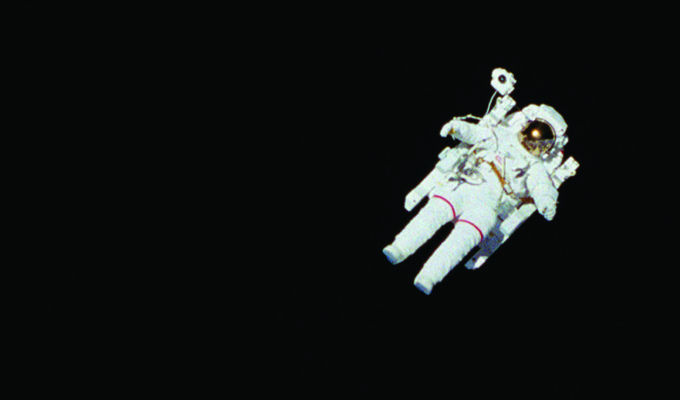
With the 50th anniversary of the first lunar landing just last month, and for the purposes of this article, I want you to imagine that the “Xiao Qu” (鬼혐) in which you live in Nanjing as being on the surface of the Moon.
That body appears very briefly at the start of the 1997 movie “Contact”, widely credited as having one of cinema’s best opening sequences; a zoom out from planet Earth to the Big Bang itself that illustrates just how insignificant we are in our creator’s overall plan.
Likewise, China is vast. So much so that, again, we feel as a dot in the cosmos, just one of perhaps slightly less than one and a half billion citizens in a land that theoretically spans five time zones.
Yet, everything has a place and a feeling of belonging. Thankfully, each and every dot in the Middle Kingdom is subjugated to and ever larger hierarchy. From the all-seeing, overarching motherland, right down to the few neighbours that comprise a “Dan Yuan” (데禱), we are but one, well-organised community, or ant colony, if you’re having that termed a “Bad China Day”.
We might know them as residential compounds, gated communities or simply complexes, but the Xiao Qu is the basic administrative division from which the geographical arrangement of all that comprises the People’s Republic begins.
Therein, the compound is administered by the “building management”; we can think of them as NASA. The next compound bordering yours has a different building management responsible, perhaps the European Space Agency, and so on.
It is beyond the scope of the article to delve into the various building managements out there; suffice to say that they exhibit roughly the same degrees of mismanagement, ineptitude, bureaucracy and corruption as the aforementioned agencies that deal with off-world affairs.
So our moon is now populated with all of these many residential compounds, to the extent that the moon itself is classified as a sub district (쌍돛), that together with our neighbouring moons, belong to a planet, or in China, the district (혐) of a city.
In a practical, real-world example, Royal Family Gardens (RFG) in Xianlin, is a compound popular with foreigners in Nanjing. RFG’s building management has told The Nanjinger that more than 200 foreign families live therein.
It, together with not-far-away Evian Valley, another hit with the expats, both belong to Xianlin Sub District that forms part of Qixia District in Nanjing. A total of 12 sub districts make up Qixia, with the remaining districts of Nanjing sporting similar numbers.
We can therefore think of the sub districts as moons that orbit the same planet, otherwise known as the city’s districts; moons RFG and Evian Valley as rocky outposts circling planet Qixia, as it were.
Continuing our galactic metaphor, Lishui and Gaochun districts would likely be the Pluto and Eris of our Nanjing solar system, both in terms of their remoteness and that they be the bodies formerly known as counties, until the city’s administrative rearrangement in 2013.
Then there are the two big boys; Jiangning that is Jupiter and Liuhe starring Saturn. For these two are by far and away Nanjing’s two largest districts. Next would come Pukou as Uranus, Qixia played by Neptune, then Jianye, Qinhuai, Gulou, Xuanwu and Yuhuatai, represented by the four inner, smaller planets that are Mercury, Venus, Earth and Mars, plus the asteroid belt (sic, and in no particular order).
All of this makes Nanjing the Sun.
Our cosmic breakdown of China’s administrative divisions is nearly complete. While we may have to shy away from the term “globular cluster” for fear of the Astro Physicists debunking our theory, but metaphorically, it has value in our over generalization of the make up of the Milky Way.
With that said, we shall next call the cities that comprise the Yangtze River Delta (pretty much everything between here and Shanghai, and some of the surrounding bits) as a globular cluster. It, together with the many other cities nationwide that constitute out galaxy’s further-flung stars, mean that we can pronounce China as our galaxy that is the Milky Way.
QED.

